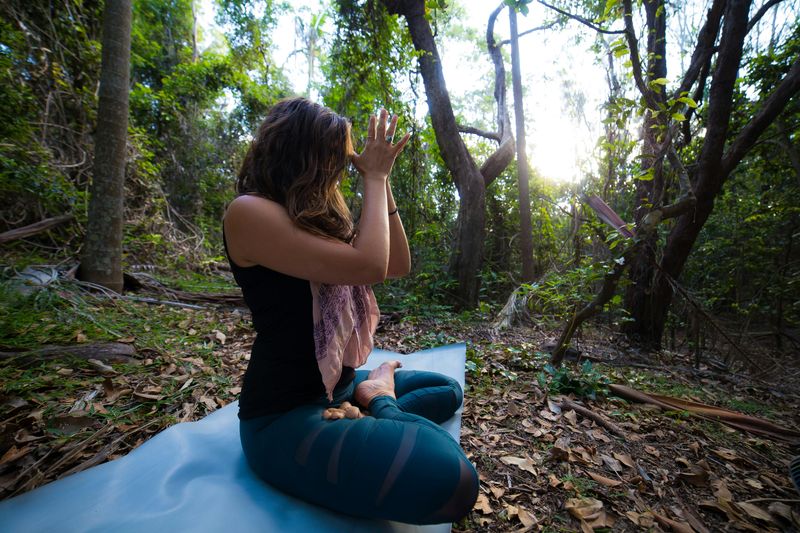12 Signs You’re Healing From a Codependent Relationship

Breaking free from a codependent relationship is one of the toughest challenges anyone can face. When you’ve spent so long putting someone else’s needs before your own, it can feel strange to finally focus on yourself. Healing doesn’t happen overnight, but there are clear signs that show you’re moving in the right direction. Recognizing these changes can give you the confidence to keep growing stronger every day.
1. Setting Boundaries Feels Natural

Saying no used to feel impossible, but now it rolls off your tongue without guilt eating you alive afterward. Boundaries aren’t walls you build to keep people out; they’re guidelines that protect your energy and time. You’ve realized that respecting yourself means others will learn to respect you too.
When someone pushes back against your limits, you don’t immediately crumble or apologize for having needs. Your voice stays steady, and your resolve doesn’t waver like it once did. This shift shows you’re valuing yourself in ways you never could before.
Healthy relationships thrive on mutual respect, not one person constantly sacrificing their well-being. You’re finally understanding that protecting your peace isn’t selfish—it’s necessary for genuine connection.
2. Your Identity Exists Beyond the Relationship

Remember when your entire world revolved around one person? Those days are fading fast. You’ve started rediscovering hobbies, interests, and passions that have nothing to do with anyone else’s approval or participation.
Your conversations now include stories about your own experiences rather than just updates about someone else’s life. Friends notice you seem more present and engaged when you’re together. You’re building a life that feels authentically yours instead of borrowed from someone else’s script.
This independence doesn’t mean you’re closing yourself off from connection. Actually, having your own identity makes relationships richer because you bring more to the table. You’re becoming whole on your own, which is the foundation of healthy partnerships.
3. You’re Not Constantly Checking Your Phone

Your phone used to be an extension of your hand, always waiting for that next text or call. Now it sits untouched for hours without triggering panic or anxiety. You’ve stopped obsessively monitoring someone else’s social media activity or waiting for validation through messages.
This freedom from constant digital checking shows you’re no longer seeking external reassurance to feel okay. Your mood doesn’t swing wildly based on response times or emoji choices anymore. You’ve found stability within yourself rather than through someone else’s attention.
Being present in real-life moments has become more important than virtual connections. You’re learning that your worth isn’t measured by how quickly someone replies or how often they reach out.
4. Emotions Don’t Control Your Every Move

Codependency often meant riding an exhausting emotional rollercoaster controlled by someone else’s feelings. Now you’re learning to acknowledge emotions without letting them hijack your entire day. When sadness or anger appears, you can sit with it instead of immediately reacting or seeking rescue.
You’ve developed coping strategies that actually work—whether that’s journaling, talking to a friend, or simply taking a walk. Your emotional responses feel more measured and less like explosive reactions to every little trigger. This emotional regulation is a massive sign of healing and growth.
Understanding that feelings are temporary visitors rather than permanent residents has changed everything. You’re no longer afraid of discomfort because you know it will pass.
5. You’re Making Decisions for Yourself

Every choice used to require someone else’s input or approval before you could move forward. What to wear, what to eat, which job to take—nothing felt valid without external confirmation. Now you’re trusting your own judgment and making choices based on what feels right for you.
This doesn’t mean you never seek advice, but you’re no longer paralyzed without it. You’ve stopped second-guessing every decision or changing your mind based on someone else’s opinion. Your internal compass is getting stronger with each choice you make independently.
Mistakes don’t devastate you anymore because you see them as learning opportunities rather than proof you can’t function alone. This confidence in your decision-making is transforming how you move through life.
6. You’re Comfortable Spending Time Alone

What once felt like punishment or rejection has become something you genuinely value. Solitude no longer sparks panic—it offers peace. You’ve learned to enjoy your own company, and in that space, you’ve found something healing.
Weekend plans without others involved don’t feel like failures anymore. You’re learning to appreciate quiet moments for reflection and self-care. This comfort with solitude shows you’re no longer running from yourself or needing constant distraction.
Healthy relationships include space for individual growth, not just constant togetherness. You’re finally understanding that being alone and being lonely are completely different experiences.
7. You’re Attracting Healthier Relationships

The people entering your life now feel different from past connections. They respect your boundaries, support your growth, and don’t demand constant attention or validation. You’re noticing patterns where new friendships and relationships feel more balanced and reciprocal.
Drama and chaos no longer feel exciting or normal in your interactions. You’re drawn to stability and mutual respect rather than intensity and neediness. This shift in who you attract reflects the internal changes you’ve been making.
Toxic people who once would have pulled you in now raise immediate red flags. You’re developing an intuition about who deserves space in your life and who doesn’t. This discernment protects your progress and keeps you moving forward.
8. You’re Not Obsessing Over Someone Else’s Problems

There was a time when solving someone else’s problems felt like your personal mission. Their struggles consumed your thoughts, and you’d lose sleep trying to fix situations that weren’t yours to fix. Now you’re learning to offer support without taking ownership of outcomes that belong to others.
You’ve stopped playing therapist, rescuer, or parent to adults who need to handle their own lives. Compassion still exists, but it’s no longer accompanied by the crushing responsibility to fix everything. This detachment isn’t cold—it’s healthy and necessary.
Your mental energy is now available for your own goals and challenges. You’re realizing that everyone’s journey is their own, and sometimes the kindest thing is letting people face natural consequences.
9. You’re Recognizing Your Own Needs Matter

For years, your needs took a backseat to everyone else’s wants and demands. Asking for what you needed felt selfish or impossible. Now you’re beginning to understand that your needs are just as valid and important as anyone else’s.
You’re speaking up when you’re tired, hungry, or overwhelmed instead of pushing through until you collapse. Self-care isn’t indulgent anymore—it’s a priority that keeps you functioning well. You’ve learned that you can’t pour from an empty cup.
Prioritizing yourself doesn’t make you a bad person; it makes you a healthier one. People who truly care about you will respect your needs rather than punishing you for having them. This realization is revolutionary for your healing journey.
10. You’re Letting Go of Control

Trying to manage everything around you used to feel like the only way to feel safe. But control never gave you the peace you were looking for—just exhaustion. Now, you’re learning that accepting what you can’t change brings a deeper kind of strength.
When plans change or people make choices you disagree with, you’re able to adapt without falling apart. Your happiness isn’t dependent on everything going exactly as you planned. This flexibility shows tremendous growth and emotional maturity.
Trusting the process means understanding that uncertainty is part of life, not something to be eliminated. You’re finding peace in the unknown rather than constantly fighting against it. This surrender brings more calm than control ever did.
11. You’re Celebrating Small Wins

Healing isn’t one giant leap; it’s thousands of tiny steps forward. You’ve started noticing and celebrating these small victories instead of dismissing them as insignificant. Whether it’s saying no without guilt or spending a peaceful evening alone, each moment counts.
You’re keeping track of progress rather than fixating on how far you still have to go. This positive focus fuels motivation and builds confidence in your ability to continue growing. Acknowledging your efforts reminds you that change is happening, even when it feels slow.
Comparison to others has decreased because you understand everyone’s healing timeline is different. Your journey is uniquely yours, and every step deserves recognition. This self-compassion accelerates recovery more than criticism ever could.
12. You’re Building a Support System That Uplifts You

You’ve started surrounding yourself with people who genuinely want to see you succeed and grow. These relationships feel different—there’s no competition, jealousy, or hidden agendas. Your support system now includes people who celebrate your progress and gently hold you accountable when needed.
Therapy, support groups, or trusted friends have become safe spaces where you can be honest without judgment. You’re no longer isolating or pretending everything is fine when it isn’t. Asking for help has transformed from weakness into wisdom.
This network reminds you of your worth when old patterns try to pull you backward. They reflect back the progress you’ve made and encourage continued growth. Having people who truly support your healing makes the journey less lonely and more sustainable.

Comments
Loading…